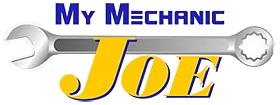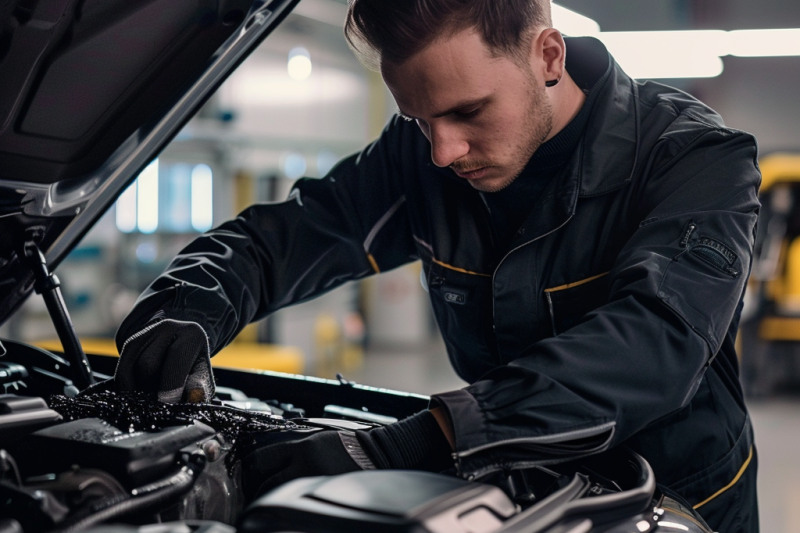The Importance of Regular Vehicle Maintenance: Keep Your Car Running Smoothly
Table of Contents
- 1 The Importance of Regular Vehicle Maintenance: Keep Your Car Running Smoothly
- 2 Frequently Asked Questions (FAQ)
- 2.1 1. What is the importance of regular tire maintenance?
- 2.2 2. How often should I check my brake system?
- 2.3 3. When is it recommended to change the oil in my vehicle?
- 2.4 4. Why is it important to inspect and replace spark plugs regularly?
- 2.5 5. How can I ensure proper vehicle maintenance to extend the life of my car?
- 2.6 6. What are some basic car maintenance tips for new car owners?
- 2.7 7. Why is it important to check and maintain the coolant level in my car?
Driving a car is a necessity for most of us, and—like any machine—our vehicles are subject to wear and tear. Regular car maintenance is crucial to keep them in good working order, and—as many of us have learned the hard way—neglecting it can lead to costly repairs or even a breakdown.
Safety should always be our top priority when hitting the road, and staying on top of maintenance is the most effective way to ensure a safe and smooth driving experience. Think about it: an oil change, for example, helps to ensure your engine is well-lubricated, preventing friction and reducing the buildup of heat within it. That’s essential for a smooth-running engine, and just imagine the potential troubles you’re avoiding with regular oil changes and replacing a worn timing belt alone.
With that in mind, we’re diving into the benefits of sticking to a regular vehicle maintenance schedule, and how doing so can extend your car’s life, save you money, and provide you with the peace of mind that comes from knowing your vehicle is running at its best.
The Key Components of Regular Vehicle Maintenance
Going beyond the essential oil change, there are several important procedures that our team will carry out to keep your vehicle running smoothly. To get the most out of your maintenance visits, consider the following critical components:
1. Always ensure the oil filter is replaced during an oil change. Fluid levels: Oil isn’t the only fluid that requires attention. Our team will check the levels of your coolant, brake fluid, transmission fluid, and power steering fluid, and inspect the timing belt if needed. We’ll also ensure that all fluids are clean and free of debris, which could potentially cause damage to the corresponding system.
2. Tire maintenance: It’s not just about filling your tires with air; checking the car battery and air filter is equally important. Regular tire rotations, proper wheel alignment, and timely replacements all contribute to a smooth, safe, and efficient ride.
We’ll also inspect your tires for signs of uneven or excessive wear, which could indicate issues with your suspension or steering system.
3. Remember to replace the air filter and spark plug regularly for optimal performance. Brake maintenance: We’ll also inspect components like the brake fluid and the serpentine belt. Brake pads and rotors wear down over time, and it’s not always apparent when they need replacing. During your regular check-ups, we’ll inspect your car’s brake components and advise if it’s time for a replacement or a check on the oil filter.
4. Suspension system: Shocks, struts, and the rest of your suspension system play a significant role in your vehicle’s ride quality and steering response. Our technicians will check for signs of excessive wear or damage to ensure that your car drives smoothly and efficiently.
Sticking to a Maintenance Schedule
Now that we’ve established the importance of regular vehicle maintenance and the key components involved, let’s talk about sticking to a schedule. The frequency of your vehicle’s maintenance visits will depend on its make and model, as well as your driving habits and local climate.
Generally speaking, most vehicle manufacturers recommend servicing your vehicle every 5,000 to 7,500 miles or every six months, whichever comes first. This can vary, so make sure to consult your owner’s manual for the most accurate information.
Some other essential aspects of maintaining a good maintenance schedule include:
1. Keeping track of your mileage. Make a habit of jotting down your mileage when you fill up and note when your vehicle is due for its next maintenance visit.
2. Pay attention to your dashboard alerts. Look for illuminated dashboard alert indicators, which are designed to notify you of potential issues with your vehicle that need addressing.
3. Address identified issues promptly. Postponing necessary repairs or replacement parts can exacerbate problems and result in more costly repairs down the line.
Plan Ahead: Seasonal Vehicle Maintenance
Preparing your vehicle for seasonal changes is a vital but often overlooked aspect of regular maintenance. Staying on top of seasonal maintenance not only keeps your car running optimally but also helps extend its lifespan.
Consider these tips to get your car ready for the changing
seasons:
1. Winter: Before cold weather kicks in, make sure to swap out your all-season tires for winter-specific ones. Stock up on de-icing fluid, and guarantee that your battery and heating system are in good working condition.
2. Spring: With warmer temperatures, inspect for any damage caused by winter conditions such as potholes and salt. Replace worn wipers, rotate your tires, and check your fluid levels.
3. Summer: Anticipate the effects of the increased heat on your engine by ensuring your cooling system is working efficiently and properly topped off. Make sure your air conditioning system is keeping your car cool and comfortable.
4. Autumn: Get your car ready for fall by checking your lights and replacing burnt-out bulbs. Keep an eye on your tire tread depth and adjust your tire pressure to adapt to cooler temperatures.
Trusting the Pros with Your Vehicle Maintenance
Managing regular vehicle maintenance can seem overwhelming, but keeping your car in good shape doesn’t have to be a daunting task. By entrusting your vehicle maintenance to a dedicated and professional team like ours, you’ll have peace of mind, knowing that your car will receive the best possible care.
At My Mechanic Joe, our experienced and certified technicians prioritize customer satisfaction. We understand the importance of maintaining your vehicle’s performance while offering the highest standard of service and expertise. With our comprehensive diagnostic and repair services, you can count on us to help you stay on track with your maintenance schedule and keep your car running like new.
Make Regular Car Maintenance a Priority
By now, it’s evident that regular vehicle maintenance is essential for numerous reasons, ranging from safety to performance and even financial savings. Following a consistent maintenance schedule, addressing seasonal changes, and entrusting your vehicle to a reputable team of professionals will result in a safer, more efficient ride that will serve you well for years to come.
My Mechanic Joe is here to help you navigate your vehicle’s maintenance requirements. Our dedication to excellence and attention to detail will ensure that your car stays in top-notch shape, mile after mile. Contact our auto repair shop in Woodstock today for an appointment, and let our skilled team show you the difference that expert service makes for your vehicle’s performance and longevity!
Frequently Asked Questions (FAQ)
1. What is the importance of regular tire maintenance?
Regular tire maintenance is crucial for safe driving and optimal performance of your vehicle. Properly inflated tires, adequate tread depth, and regular rotations help extend the life of your tires and improve fuel efficiency.
2. How often should I check my brake system?
You should have your brake system inspected at least once a year or if you notice any signs of braking issues such as squeaking or grinding noises, pulsating brakes, or decreased brake responsiveness.
3. When is it recommended to change the oil in my vehicle?
It is generally recommended to change the oil in your vehicle every 5,000 to 7,500 miles or as per your manufacturer’s guidelines. Fresh motor oil helps lubricate engine components and maintain engine efficiency.
4. Why is it important to inspect and replace spark plugs regularly?
Regular inspection and replacement of spark plugs are important for optimal engine performance. Worn-out spark plugs can lead to misfiring, rough idling, and decreased fuel efficiency.
5. How can I ensure proper vehicle maintenance to extend the life of my car?
Following a maintenance schedule and conducting routine vehicle maintenance tasks such as checking fluid levels, changing filters, and inspecting components regularly can help keep your car running smoothly and prevent breakdowns.
6. What are some basic car maintenance tips for new car owners?
Basic car maintenance tips include washing your car regularly, checking tire pressure and fluid levels, and following a maintenance checklist provided by your vehicle’s manufacturer.
7. Why is it important to check and maintain the coolant level in my car?
Maintaining the proper coolant level is crucial for preventing engine overheating and protecting your car’s cooling system. Regularly checking and topping up the

